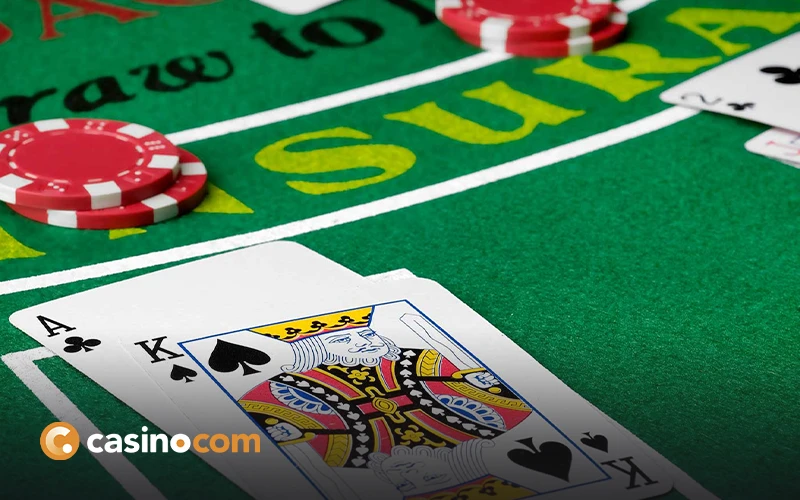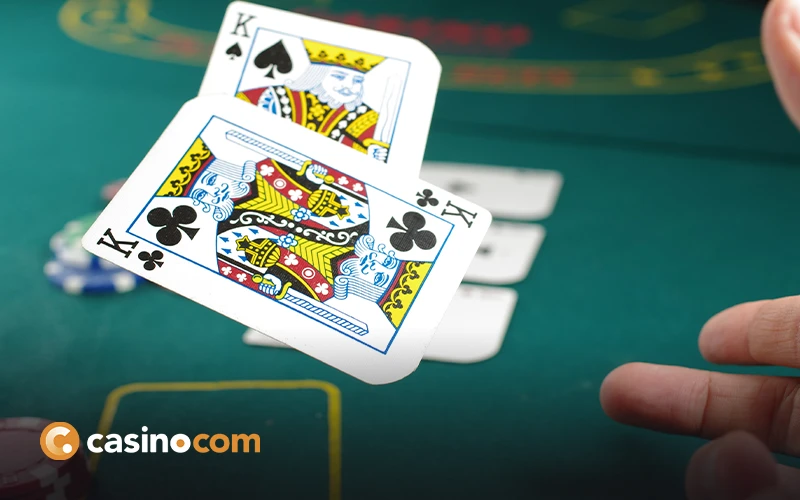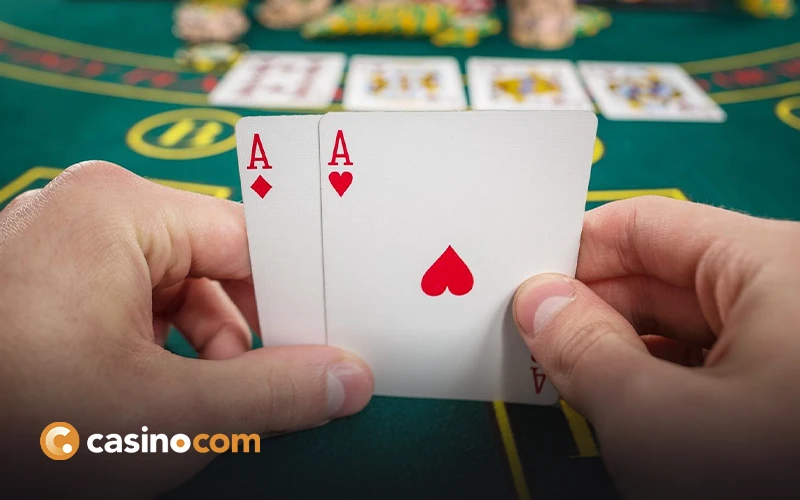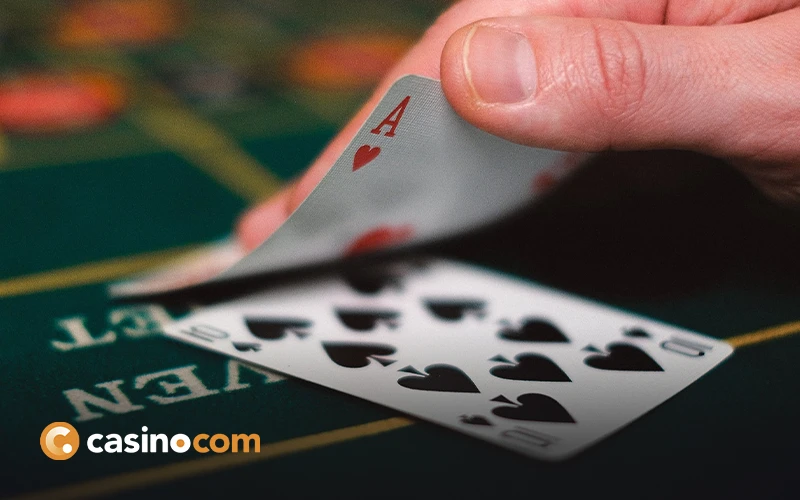If you’ve ever played poker at home, you’ve probably heard someone say, “Dealer’s choice!” But what does that actually mean — and how does it work in real tournaments like the World Series of Poker (WSOP)?
Let’s break it down in simple terms.
What Is Dealer’s Choice Poker?
In Dealer’s Choice poker, each player takes turns choosing which poker game everyone will play for one round (called an “orbit”).
Unlike regular mixes like H.O.R.S.E. where the games follow a set order, in Dealer’s Choice the rotation depends entirely on the players at the table. One person might pick Texas Hold’em, the next might go for Omaha, and the next might pick something wild like Badugi.
That’s what makes Dealer’s Choice so interesting — every round can feel totally different.
Why Players Love Dealer’s Choice
Players enjoy this format because it adds a layer of strategy. When it’s your turn to pick, you want to choose a game you’re strong at — and ideally one your opponents struggle with.
You might also think about what games you play best, what your opponents play worst, and how deep your stack is. It’s part skill, part strategy, and a little bit of mind reading.
Dealer’s Choice at the World Series of Poker (WSOP)
The WSOP first added Dealer’s Choice in 2014 with a $1,500 event. It became so popular that they introduced a $10,000 Championship version the following year — and it’s been a regular event ever since.
Top players love it because it tests who can adapt best across dozens of poker formats. You can’t just be good at one game — you need to handle almost anything.
How to Pick Your Game
When it’s your turn to deal, think about what games you play best, what your opponents play worst, and how deep your stack is.
For example, if you’re short-stacked, you might pick a fast-paced game like No-Limit Hold’em. If you have a big stack, you could pick something more complex like Omaha Hi-Lo to pressure the table.
The 20 Most Popular Dealer’s Choice Poker Games
There are dozens of possible games, but these 20 are the ones most often used in WSOP Dealer’s Choice events. They fall into five main categories:
1. Hold’em Variants
-
No-Limit Hold’em
-
Pot-Limit Hold’em
-
Limit Hold’em
-
Double-Stack Hold’em
You probably know these — they’re classic poker games where everyone gets two hole cards and uses five community cards. The difference comes from how betting works:
-
No-limit: Bet anything at any time
-
Pot-limit: You can only bet up to the size of the pot
-
Limit: Bets are fixed
Tip: In limit games, bluffing is harder because you can’t bet big enough to scare people off.
2. Omaha Variants
-
Pot-Limit Omaha (PLO)
-
Omaha Hi-Lo Eight-or-Better
-
Limit Omaha (High)
-
Limit Omaha Hi-Lo
-
Big O (Omaha with 5 hole cards)
In Omaha, everyone gets four (or five) hole cards instead of two, and you must use exactly two of them. That means stronger hands are more common, so don’t overvalue small pairs or weak straights.
Tip: In Omaha, it’s easy to think you’re ahead when you’re not. Always watch for redraws.
3. Stud Variants
-
Seven-Card Stud
-
Razz (Lowball Stud)
-
Seven-Card Stud Hi-Lo (8 or better)
In Stud games, there are no community cards. Everyone gets their own board of face-up and face-down cards.
Tip: Pay attention to what cards are showing. You can often figure out if your opponent’s draw is dead just by watching.
4. Single Draw Variants
-
Five-Card Draw
-
2-7 Lowball Draw
These are old-school poker games where each player gets five cards and can draw new ones.
In Five-Card Draw, you want the highest hand. In 2-7 Lowball, you want the lowest hand (so straights and flushes actually count against you).
Tip: Position matters. Watching how many cards your opponents draw gives you valuable clues.
5. Triple Draw & Mixed Games
-
2-7 Triple Draw
-
A-5 Triple Draw
-
Badugi
-
Badeucy
-
Badacey
-
Pot-Limit 2-7 Triple Draw
These are lowball and mixed games where players can draw up to three times.
Badugi uses four cards and aims for the lowest hand with all different suits. Badeucy and Badacey are split-pot games that mix elements of Badugi and lowball poker — you can win half or even the whole pot if you make both strong hands.
Tip: Having a “deuce” (2) in your starting hand is usually a good sign in most lowball games.
Can You Play Dealer’s Choice Poker Online?
Yes — though not every site offers all 20 variants. Online poker is actually the best place to practice these games because you can play at your own pace without risking big money.
Some great sites to explore mixed and variant poker include WSOP.com, PokerStars, and BetMGM Poker. They all offer different formats and bonuses for beginners.
Dealer’s Choice Apps for Mobile Play
If you just want to have fun and try out different games, there are also apps that let you play Dealer’s Choice-style home games with friends. You can rotate games manually or let the app randomize them for you — perfect for a casual poker night.
Final Thoughts
Dealer’s Choice poker is one of the most exciting formats because it rewards versatility. It’s not just about luck or one skill — it’s about how well you adapt.
Whether you’re playing at the WSOP or around the kitchen table, it’s a true test of poker creativity.
If you want to get better at it, start by learning a few of the main variants online. Once you’re comfortable switching between Hold’em, Omaha, and a few draw games, you’ll be ready to handle whatever anyone calls next.
In short, Dealer’s Choice poker keeps the game fresh, fun, and unpredictable — and that’s exactly why players love it.
FAQ
How does Dealer’s Choice poker work?
In Dealer’s Choice poker, each player takes turns choosing which poker game will be played for one round. The game can be any variant allowed at the table, such as Hold’em, Omaha, or a draw game. This makes each round different and adds a strategic layer to the game.
What is the 7-2 rule in poker?
The 7-2 rule is a joking reference to the fact that a 7 and 2 offsuit is the worst starting hand in Texas Hold’em. It’s almost always recommended to fold this hand because it rarely wins.
What does dealer choice mean
“Dealer choice” means the dealer (or the player whose turn it is) gets to pick the poker variant for that round. This allows players to pick games they’re good at or games that might be harder for their opponents.
What poker do you play against the dealer?
When you play poker against the dealer, it’s usually in casino-style games like Casino Hold’em or Three Card Poker, where the goal is to beat the dealer’s hand instead of other players at the table.





